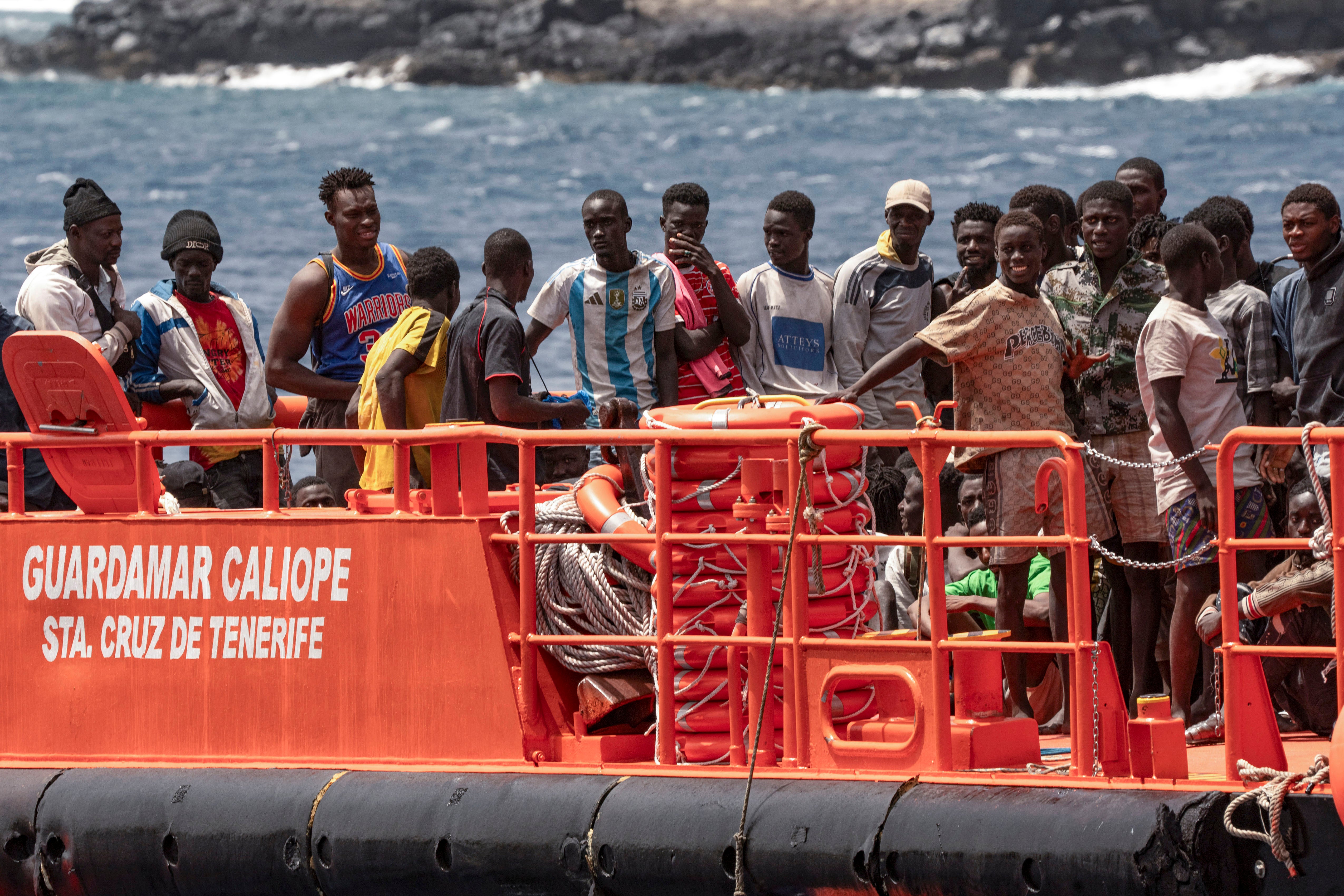Irregular migration into the European Union fell sharply last year, border agency says
The European Union's border agency Frontex says that irregular migration into the European Union fell sharply in 2024

Your support helps us to tell the story
From reproductive rights to climate change to Big Tech, The Independent is on the ground when the story is developing. Whether it's investigating the financials of Elon Musk's pro-Trump PAC or producing our latest documentary, 'The A Word', which shines a light on the American women fighting for reproductive rights, we know how important it is to parse out the facts from the messaging.
At such a critical moment in US history, we need reporters on the ground. Your donation allows us to keep sending journalists to speak to both sides of the story.
The Independent is trusted by Americans across the entire political spectrum. And unlike many other quality news outlets, we choose not to lock Americans out of our reporting and analysis with paywalls. We believe quality journalism should be available to everyone, paid for by those who can afford it.
Your support makes all the difference.The number of irregular border crossings into the European Union fell significantly in 2024, according to the bloc's border control agency Frontex, something which it attributed to intensified cooperation against smuggling networks.
The Warsaw-based agency said in a statement that its preliminary data for last year reveal a 38% drop in irregular border crossings into the 27-member bloc.
The data refers to the number of detections of irregular border crossing at the external borders of the EU, not the total number of people who tried to cross. In some cases the same erson may cross the border several times in different locations at the external border, Frontex notes.
The agency said that there were just over 239,000 detections of irregular border crossings, the lowest number registered since 2021, when migration was lower due to the COVID-19 pandemic.
The agency said that despite the overall decrease, challenges persist, including dangerous sea crossings resulting in significant loss of life and the evolving tactics of smuggling networks.
Despite the decrease in irregular arrivals, a sense has taken hold across Europe that there is too much unregulated immigration to the continent.
The issue has dominated political life in Europe since 2015, when more than a million people arrived at once, many fleeing the war in Syria. The issue has boosted far-right parties that strongly oppose accepting large numbers of refugees and migrants — including in places like Austria and Germany.
The decrease in the total number was mainly driven by a 59% plunge in arrivals via the Central Mediterranean route due to fewer departures from Tunisia and Libya, Frontex said. It also reported a 78% fall in detections on the Western Balkan route following efforts in that region to halt arrivals.
At the same time irregular arrivals were up last year along the EU's eastern borders with Belarus.
Frontex also said it recorded an 18% increase in arrivals to the Canary Islands, a Spanish archipelago close to the African coast that is increasingly used as an alternative stepping stone to continental Europe.
It said the nearly 47,000 arrivals it recorded there marked the highest figure since it began collecting data in 2009.
“While 2024 saw a significant reduction in irregular border crossings, it also highlighted emerging risks and shifting dynamics,” Frontex Executive Director Hans Leijtens said.
The Frontex statement noted that authorities have reported increasing violence by smugglers along the Western Balkan route, while growing instability in regions like the Sahel continues to drive migration towards Europe.